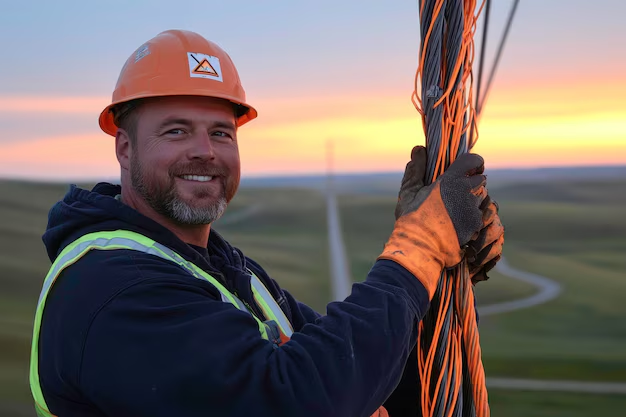Your Guide to Becoming an Electrician in Texas
Are you intrigued by the world of electricity and looking to start a rewarding career as an electrician in Texas? The Lone Star State offers ample opportunities for aspiring electricians, but knowing where to start can be a bit daunting. With this guide, we'll illuminate the pathway to becoming a licensed electrician in Texas, while also pointing you towards valuable financial assistance and educational resources to help you thrive in this dynamic field.
Start with the Right Education
Get a High School Diploma or GED: Your first step is to obtain your high school diploma or GED. Courses in math, physics, and shop can be particularly beneficial, giving you a strong foundational knowledge for your future electrical studies.
Consider a Pre-Apprenticeship Program: These programs are designed to introduce you to the basic skills and tools of the electrical trade. While not mandatory, they offer a head start as you learn from professionals and gain insight into the work environment.
Secure an Apprenticeship
In Texas, aspiring electricians usually begin as apprentices. Joining an apprenticeship program provides hands-on experience under the supervision of a licensed electrician, coupled with classroom instruction.
Steps to Becoming an Apprentice:
- Research and Apply: Look for apprenticeship opportunities through organizations like the Independent Electrical Contractors (IEC) or the International Brotherhood of Electrical Workers (IBEW). The application process generally includes an entrance exam and interview.
- Complete Your Training: Apprenticeships typically last four years, during which time you work full-time while taking coursework. This blend of practical and theoretical knowledge is invaluable.
Obtain Your Electrician License
In Texas, you must be licensed to work as an electrician. The first license type is the Journeyman Electrician License.
Requirements for a Journeyman License:
- Complete the Apprenticeship: Finish your apprenticeship program approved by the Texas Department of Licensing and Regulation (TDLR).
- Pass the Licensing Exam: The TDLR exam tests your understanding of electrical concepts, the National Electrical Code, and Texas laws.
Explore Financial Assistance and Educational Grants
Pursuing a career as an electrician in Texas requires an investment of time and occasionally, money. However, several resources can help ease financial burdens:
- Federal Financial Aid: Fill out the FAFSA to determine eligibility for federal aid, which can cover educational expenses during training.
- Apprenticeship Sponsors: Many apprenticeships are paid positions, helping you make money while learning. Some programs even cover your educational materials and costs.
- State Grants and Scholarships: Texas offers various vocational scholarships and grants for those entering trades. Research your eligibility for additional state-based funding.
Additional Career Support
To ensure a prosperous career as an electrician, managing your finances effectively is crucial. Here are some support areas to consider:
- Debt Management Solutions: If you have existing student loans or other debts, look into consolidation or other relief options to keep your finances healthy while advancing your career.
- Credit Card Solutions: Using credit responsibly can support continuing education needs or starting costs if launching your electrical business.
Becoming an electrician in Texas is within reach with the right steps, dedication, and resources. This vital career doesn't just promise stability but also offers a chance to build a lasting legacy through your skills and expertise.
Financial and Educational Support Options
- 🎓 FAFSA: Apply for federal aid to help cover training and educational costs.
- 🔌 Apprenticeship Scholarships: Check with local trade organizations for scholarship opportunities specific to electrical apprenticeships.
- 🏢 Employer-Sponsored Apprenticeships: Many employers offer on-the-job training with pay, reducing out-of-pocket costs for education.
- 💡 State Education Grants: Research Texas-specific grants for vocational programs.
- 🔑 Credit Consolidation: Explore options to manage and consolidate existing debts effectively.
- ✨ Credit Education Programs: Some banks offer free courses on credit management, aiding long-term financial planning.

